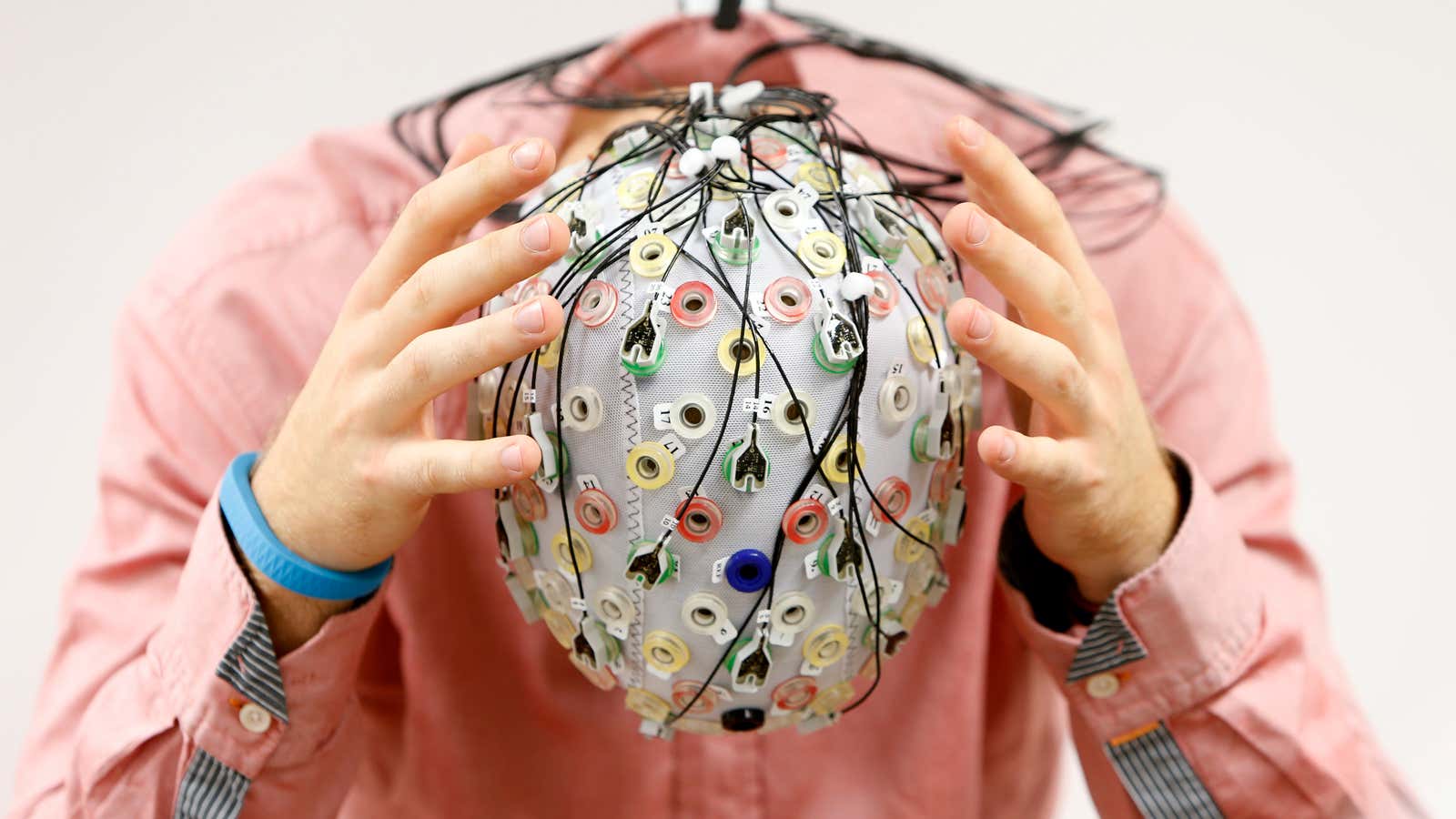Do we have free will over our thoughts and actions, or do we only feel as if we do?
It’s a question that’s provided ample fodder for philosophical debates for centuries. The argument in favor of free will has tended to fare pretty well. That is, until neuroscience started peeking behind the curtain.
If we truly possess free will, the theory goes, we ought to consciously control our thoughts and actions. We “will” them into being in a state of full awareness. But for the last couple of decades, neuroscientists have found that our brains are buzzing with activity related to thoughts and actions well before we’re conscious of executing them.
Consciousness researcher Benjamin Libet kicked off the controversy in the mid-1980s when he showed that the brain experiences several hundred milliseconds of “preparatory” activity before someone consciously chooses to physically move. The finding was revelatory. But because the brain activity was nonspecific (Libet didn’t have the technology available to link it to a specific decision), his critics argued that he was simply wrong about when the activity took place in relation to the movement. Or perhaps he’d just found “tremors” of brain activity set off by the physical movement itself.
Then, a few years later, functional magnetic resonance imaging (fMRI)—a technology capable of finding the link between brain activity and a decision—seemed to support Libet’s discovery. When brains were scanned while making a decision, such as pressing a button in response to variables presented on a computer screen, identifiable patterns of activity were apparent seconds before the decision was consciously made. This activity appears where we’d expect to find it, in the areas of the brain where we process decisions. Not only that, but physical movement is actually predictable from observing brain activity in other brain areas responsible for motor control.
In other words, with the appropriate brain imaging tools, you can trace the origins of thoughts and movements in the brain before the owner of that brain realizes they’re going to happen.
Research delivering similar body blows to the concept of free will has been stacking up for the last decade, leaving many to wonder how we’ve been so deluded about this for so long. Even more troubling: If free will is an illusion, and the brain is already making decisions seconds or even milliseconds before we’re conscious of a decision, what are the implications? How can we hold someone wholly responsible for his or her actions if the backstory for those actions materialized outside conscious control? And what’s willpower, really, if decisions are made before we can “will” them in one direction or another?
Those are tough, existentially battering questions. But hope for free will may not be entirely lost. Two sorts of life preservers could still rescue it.
The first comes in a study published in January in the Proceedings of the National Academy of Sciences. Instead of challenging the idea that the brain “prepares” for a thought or action before we’re consciously aware of it, German researchers asked if there’s any room left for us to consciously override it.
To find out, they used a computer to monitor the results of brain imaging on a group of subjects provided with a series of simple tasks. The study participants were asked to press a foot pedal when they saw a green light, and stop pressing it when shown a red light.
As long as the participants were fully aware of their decisions, this was an easy task. Then researchers upped the ante a little, directing the computer to flash the red light when it detected signs of preparatory brain activity (the activity happening in the participants’ brains before they became conscious of moving). If the red light flashed before conscious awareness, the participants shouldn’t have been able to stop their movement. But, surprisingly, they often did. An extremely brief window of opportunity appeared to open for stopping movement before it began. When that window closed (in less than a quarter of a second), the movement couldn’t be stopped.
The results dealt with infinitesimally thin slivers of time. But they nonetheless suggested that free will sometimes holds a trump card over brain activity. “They (the study participants) are able to actively intervene in the decision-making process and interrupt a movement,” lead author Dr. John-Dylan Haynes of Charité – Universitätsmedizin in Berlin, wrote at the time. “Previously people have used the preparatory brain signals to argue against free will. Our study now shows that the freedom is much less limited than previously thought.”
The second reason to hold on to the prospect of free will comes from studies observing that our beliefs can actually influence real-life outcomes. The most recent study, published in the journal Personality and Individual Differences in February, showed that students who agree with statements like “I am in charge of my actions even when my life’s circumstances are difficult” consistently earn higher grades on tests and generally perform better overall as compared to their peers whose answers to those questions reveal a disbelief in free will. And that’s true even when other factors like demographics and socioeconomic status are taken into account.
Previous research has resulted in similar outcomes. When people believe they have more control—that they can exercise free will to their benefit—their performance at work, school and other facets of their lives improves.
This brings us to one more question. Even if free will is, to some extent, an illusion, is it a useful illusion? Beliefs have consequences. Choosing to believe in at least a modicum of free will lines up with a better set of outcomes than believing otherwise.
All this suggests that even if science could reach a firm conclusion on the question of free will, the pragmatic argument in favor of believing in it remains the strongest one.
